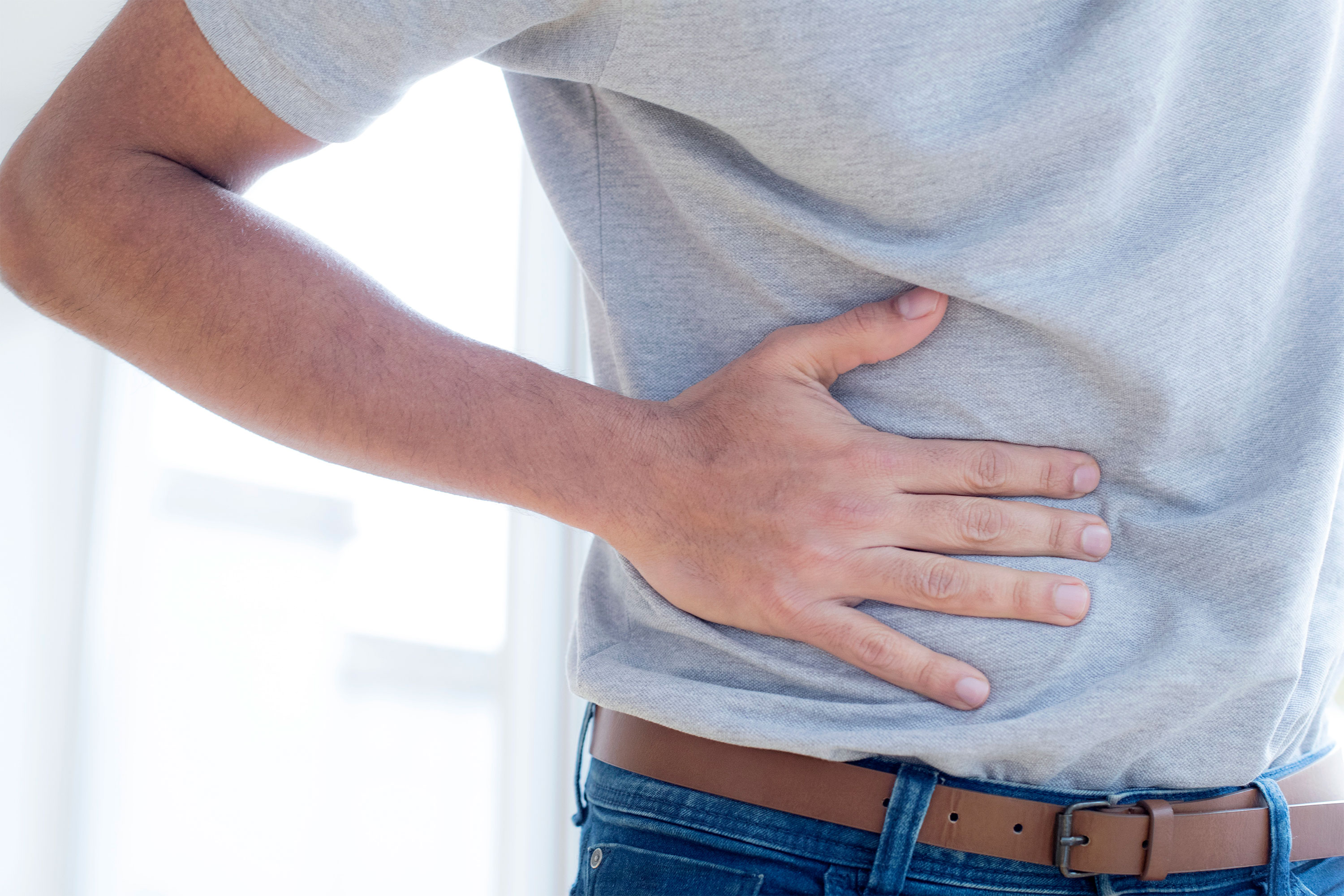Is that sharp twinge in your lower abdomen when you cough something to be concerned about? Yes, lower abdominal pain when coughing can be a signal of various underlying issues, ranging from simple muscle strains to more complex medical conditions, demanding attention and care.
The sensation of pain during a cough can affect anyone, irrespective of their age or gender. It could be a fleeting, sharp jab or a more persistent, dull ache. Recognizing the signals your body sends is crucial. This article delves into the potential causes behind lower abdominal pain when coughing, offering practical steps to alleviate the discomfort. Our aim is to provide you with comprehensive, evidence-based information, adhering to the highest standards of expertise and trustworthiness. By the end of this piece, you will have a clearer understanding of this condition, its symptoms, and the remedies available to you.
| Aspect | Details |
|---|---|
| Condition Overview | Lower abdominal pain when coughing, a frequently encountered symptom, can arise from diverse factors, from minor muscular strains to more severe underlying conditions. |
| Common Causes | Muscle strain, hernias, and kidney stones are among the primary culprits. |
| Key Symptoms | Sharp pain, swelling, tenderness, difficulty breathing, and nausea/vomiting are key indicators. |
| Diagnostic Approaches | Physical examinations and imaging tests (ultrasounds, CT scans) are used to ascertain the underlying cause. |
| Treatment Options | Medical treatments, including pain relievers, and in some cases, surgical intervention are considered. |
| Home Remedies | Warm compresses, gentle stretching, and staying hydrated can offer relief. |
| Preventive Measures | Maintaining good posture, regular exercise to strengthen core muscles, and avoiding heavy lifting are crucial. |
| Potential Complications | Chronic pain, infections, and further organ damage are possible if the condition is left untreated. |
| Dietary Recommendations | Increasing fiber intake, limiting high-sodium foods, and adequate hydration are recommended. |
| Expert Recommendations | Early intervention and a combination of medical treatment with lifestyle adjustments are highly suggested. |
| Reference Website | Mayo Clinic |
Understanding the causes of this discomfort is paramount, as it lays the groundwork for proper diagnosis and treatment. Several factors can trigger pain in the lower abdomen when you cough, and the severity can vary significantly.
- Hijos De Tom Brady
- %D1%82%D0%B0%D1%82%D1%8C%D1%8F%D0%BD%D0%B0 %D0%B4%D0%BE%D0%B3%D0%B8%D0%BB%D0%B5%D0%B2%D0%B0 %D0%B1%D0%B8%D0%BE%D0%B3%D1%80%D0%B0%D1%84%D0%B8%D1%8F
- Jodi Arias Trial
- El Royal
- How Many Ounces Is A Gallon
Muscle Strain
Among the most common culprits is muscle strain. The intense, often repetitive action of coughing can overwork the abdominal muscles, leading to discomfort and pain. This is particularly true with persistent or violent coughing episodes, which put increased pressure on the abdominal wall.
Hernia
A hernia signifies a scenario where an organ pushes through a weak spot in the muscle or tissue wall. This can occur in the abdominal region, and coughing can exacerbate the situation. The increased pressure inside the abdomen during a cough can force the organ further through the weak area, resulting in pain. This condition can range from mild discomfort to intense, sharp pain, and often requires medical attention.
Kidney Stones
Kidney stones, those hard deposits formed in the kidneys, can inflict severe pain in the lower abdomen. Coughing, with its associated pressure changes, can further aggravate this pain. The stones can move within the kidney or ureter, causing intense, colicky pain, which may radiate to the groin. Any movement, including coughing, can intensify the already agonizing experience.
- Is Harris Faulkner Leaving Fox
- Jontrin
- Life Below Zero Andy Bassich
- Meowscles Fortnite
- Lindsay Sloane Bring It On
Recognizing the associated symptoms is critical for early diagnosis and treatment. Paying close attention to your body's signals can lead to a timely intervention, potentially preventing more serious complications. The symptoms associated with lower abdominal pain when coughing can vary in intensity, but certain signs warrant immediate medical attention.
- Sharp pain in the lower abdomen: This can be a stabbing or piercing sensation, often sudden in onset.
- Swelling or tenderness in the affected area: This may indicate inflammation or muscle strain.
- Difficulty breathing or shortness of breath: This could suggest a more serious underlying condition.
- Nausea or vomiting: These symptoms can accompany the pain and may signal internal irritation or infection.
If you experience any of these symptoms, it is imperative to seek a healthcare professionals advice. Early diagnosis is the first step towards effective treatment, and a medical evaluation is essential to ascertain the underlying cause of your discomfort.
Accurate diagnosis is key for effective treatment. Healthcare providers use a range of methods to determine the root cause of the abdominal pain when coughing, each designed to provide a comprehensive understanding of the condition. The diagnostic process may involve a combination of physical examinations and advanced imaging techniques.
Physical Examination
A thorough physical examination provides a healthcare professional with the initial clues needed to pinpoint the problem. This will typically involve a detailed assessment of the abdominal region to identify any visible signs of discomfort, tenderness, or injury. The doctor may gently palpate the area, checking for lumps, swelling, or areas of increased sensitivity. In addition, the physician may ask about your medical history, including any previous injuries or relevant medical conditions.
Imaging Tests
Further investigation often involves advanced imaging tests. These techniques provide a clearer picture of what's happening inside your body. These tests can reveal hernias, kidney stones, or other internal issues. Some of the most commonly used imaging tests include:
- Ultrasound: This non-invasive imaging technique uses sound waves to create images of internal organs and structures. It is particularly helpful for identifying hernias and can be used to assess the kidneys for potential stones.
- CT Scan (Computed Tomography): A CT scan uses X-rays to create detailed cross-sectional images of the body. It can provide a more comprehensive view of the abdominal area, helping to identify a wider range of problems, including hernias, kidney stones, and other internal issues.
The treatment approach will vary based on the underlying cause of the pain. Whether it's muscle strain, a hernia, or kidney stones, the appropriate course of action will be tailored to your specific condition.
Medications
Medications are frequently employed to manage pain and reduce inflammation. Over-the-counter pain relievers, such as ibuprofen or acetaminophen, can help alleviate mild to moderate pain. In more severe cases, a doctor may prescribe stronger pain medications. Anti-inflammatory drugs can reduce swelling and ease discomfort. The choice of medication and dosage will depend on the severity of your symptoms and your medical history.
Surgical Intervention
In cases where a hernia or another structural issue is identified, surgery might be the best course of action to correct the problem and provide lasting pain relief. The surgical approach will depend on the type and severity of the condition. For instance, hernia repair surgery may involve a minimally invasive procedure to push the protruding organ back into place and reinforce the weakened abdominal wall. The aim is to prevent future episodes of pain and address the underlying issue.
While professional medical care is often necessary, there are several home remedies that can help in managing the pain. They can provide additional relief and complement professional care. These methods are not meant to replace medical advice, but they can be useful in easing discomfort and promoting recovery.
- Warm compress: Applying a warm compress to the affected area can help soothe muscle tension. The heat can promote relaxation, and reduce pain. Place the warm compress on the lower abdomen for 15-20 minutes several times a day.
- Gentle stretching exercises: Simple exercises can help improve flexibility, and reduce strain. Gentle stretches can promote circulation and ease muscle tightness. Avoid any movements that worsen your pain.
- Stay hydrated: Ensuring adequate hydration is crucial, especially if kidney stones are suspected. Drinking plenty of water can help flush out the kidneys and prevent stone formation.
Preventive measures play a vital role in reducing the risk of developing lower abdominal pain when coughing. Proactive steps can minimize the chance of experiencing discomfort. These measures focus on improving your overall health and adopting habits that support your abdominal muscles.
- Maintain good posture: Proper posture can reduce strain on the abdominal muscles. When sitting or standing, keep your back straight and your core engaged. This will distribute the weight more evenly and reduce the strain on the lower abdomen.
- Regular exercise: Regular exercise is important to strengthen your core muscles. Exercises like planks, crunches, and bridges can help build core strength.
- Avoid heavy lifting: Avoid heavy lifting or sudden movements. If lifting is unavoidable, use proper lifting techniques, bending at the knees and keeping your back straight.
Although many cases of lower abdominal pain resolve on their own, some can lead to serious complications if left unaddressed. Early intervention and proper management are essential to prevent adverse health outcomes.
- Chronic pain or discomfort: This can significantly impact your daily life, making it difficult to work, exercise, or even perform basic activities.
- Infection or abscess formation: Infections can occur if the underlying cause is not addressed. This can lead to abscess formation.
- Further organ damage: If an underlying condition, such as a hernia, is left untreated, it can lead to further damage and complications.
Dietary considerations play a crucial role in managing, and in some cases, preventing lower abdominal pain. Several dietary adjustments can contribute to overall abdominal health and reduce the likelihood of pain during coughing.
- Increase fiber intake: A diet rich in fiber promotes digestive health. Fiber helps keep bowel movements regular, reducing the risk of constipation, which can strain the abdominal muscles. Include fiber-rich foods.
- Limit high-sodium foods: Reduce the consumption of high-sodium foods. Excess sodium can lead to water retention, which can increase the pressure in the abdominal area.
- Drink plenty of water: Adequate hydration is essential for kidney function. Drinking plenty of water helps prevent stone formation.
The advice of experts is invaluable in managing lower abdominal pain. Medical professionals can provide you with the best course of action. The insights and recommendations of medical experts can guide you toward effective treatment.
Experts recommend early intervention as key to managing lower abdominal pain. A combination of medical treatment with lifestyle modifications yields the best results. Staying informed about your condition and working closely with healthcare professionals ensures that you receive the most appropriate care for your specific needs.
- Kala Lynne Savage
- Tate Mcrae Height
- %D9%86%D9%8A%D9%83%D9%88%D9%84 %D9%8A%D9%88%D9%86%D8%BA
- Valerie Robinson
- %E3%82%AB%E3%82%B5%E3%83%B3%E3%83%89%E3%83%A9 %E3%83%8F%E3%83%AA%E3%82%B9


